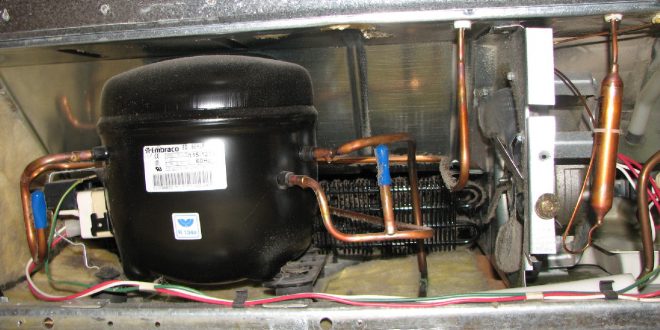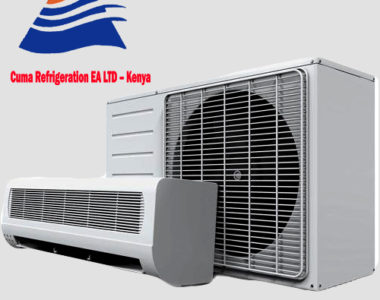
We have several cases of Refrigerator overheating caused by compressors that lead to break down. There are two main reasons why overheating can have such a devastating effect on compressors.
- Loss of the lubricating properties of the refrigeration oils which causes ineffective cooling system processing
- Chemical decomposition of the refrigerants and/or oils, which can occur suddenly
All these problems can be the result of a dirty condenser, which results in a higher condensing temperature.
Four causes of excessive discharge temperatures
Before technicians can be able to fix the problem, he must know what has caused the excessive discharge temperatures in the first place. The four most common root causes are listed below:
- High suction super heat—common system conditions that cause increase in suction temperatures are high TEV superheat settings, ineffective or missing insulation and restricted TEVs.
- Reduced condenser capacity—typically the result of poor maintenance, this occurs when the condenser fins become restricted with dirt and the airflow necessary to deliver the condenser’s rated capacity is reduced.
- Lowering the suction pressure—this is important to operate the system with the highest possible suction pressure. When system suction pressure is reduced, instead of fixing the true issue, the compression ratio increases creating higher discharge temperatures.
- Refrigerant characteristics—because R-22 is subject to higher compression ratios, which can stress bearings and reduce compression efficiency, R-22 can be problematic as a “refrigeration” refrigerant, particularly in low-temperature applications that is why we recommend buying compressors that use R134A Refrigerant that are more during e,g Danfoss compressor.
Compressor overheating is refrigeration’s most serious field problem.
In many cases, system problems and compressor failures are directly related to high discharge temperatures.
Condensers are supposed to be cleaned regularly to keep them operating at their rated capacity. The suction vapor temperature should be kept within acceptable limits by setting TEV superheat appropriately and insulating the suction line properly.
With some refrigerants and applications, other solutions (for example, a compressor body cooling fan motor) may be required to solve high discharge temperature issues.




1 Comment